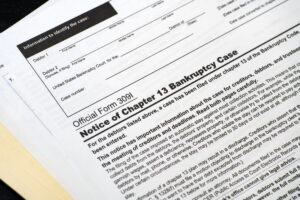A discharge order issued by the bankruptcy court permanently prohibits creditors from taking action against a debtor personally to collect debts incurred before the filing of the bankruptcy petition. The discharge does not prevent secured creditors from seizing collateral if payments are not kept up. The discharge does not prevent collection of debts incurred after the filing of the bankruptcy. Some debts are not dischargeable, and some debts are not dischargeable under certain circumstances. If you have questions about your discharge, talk with a bankruptcy attorney.
Some examples of debts that may not be discharged include: certain taxes and fines, debts not listed in your bankruptcy, alimony, child maintenance or support, debts from willful and malicious injury to another, debts created through fraudulent conduct or by providing false information to a creditor. For a complete list of non-dischargeable debts, review 11 U.S.C. §§ 523 (as it applies to all Chapters) and §1328 (for Chapter 13 cases).


